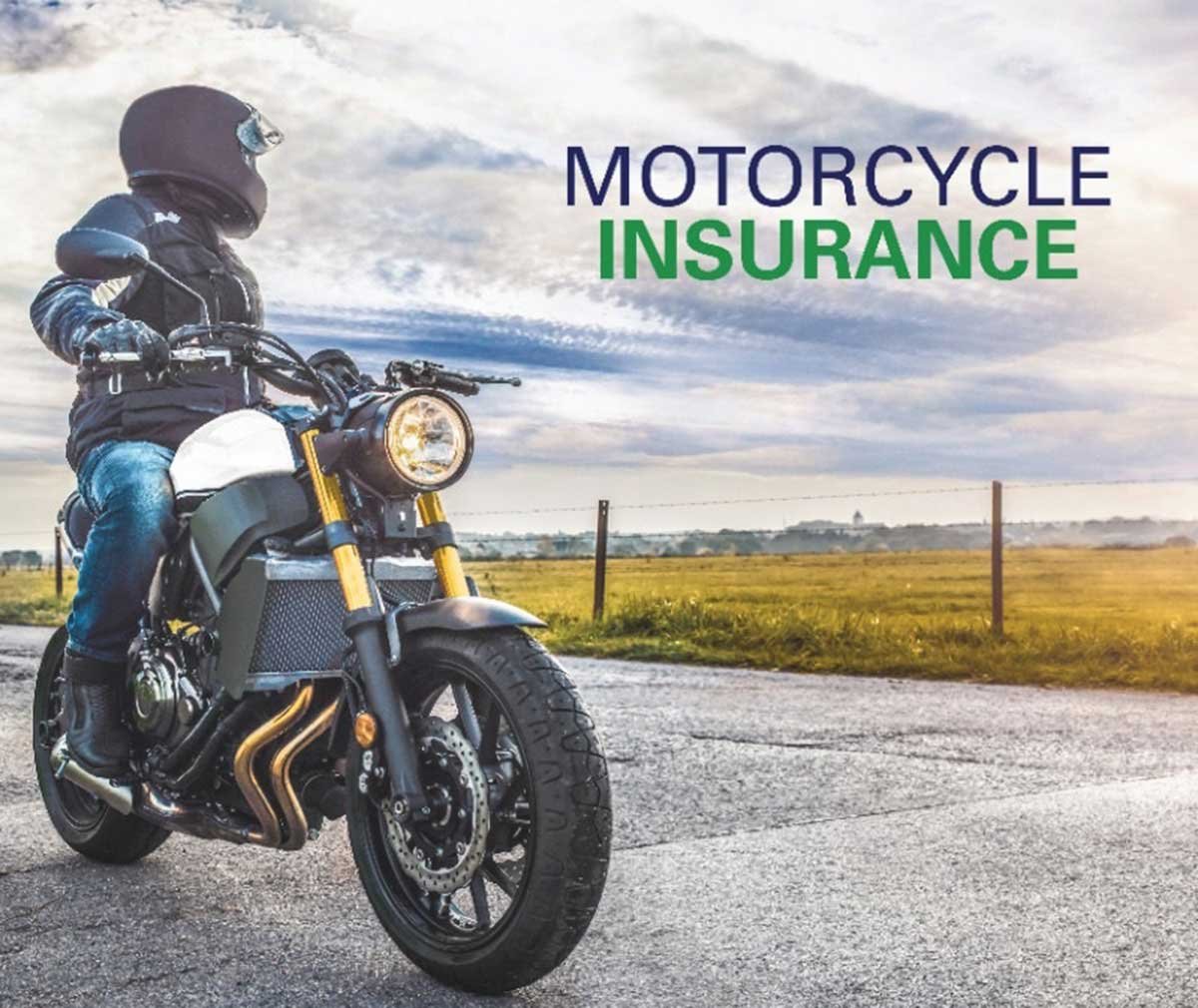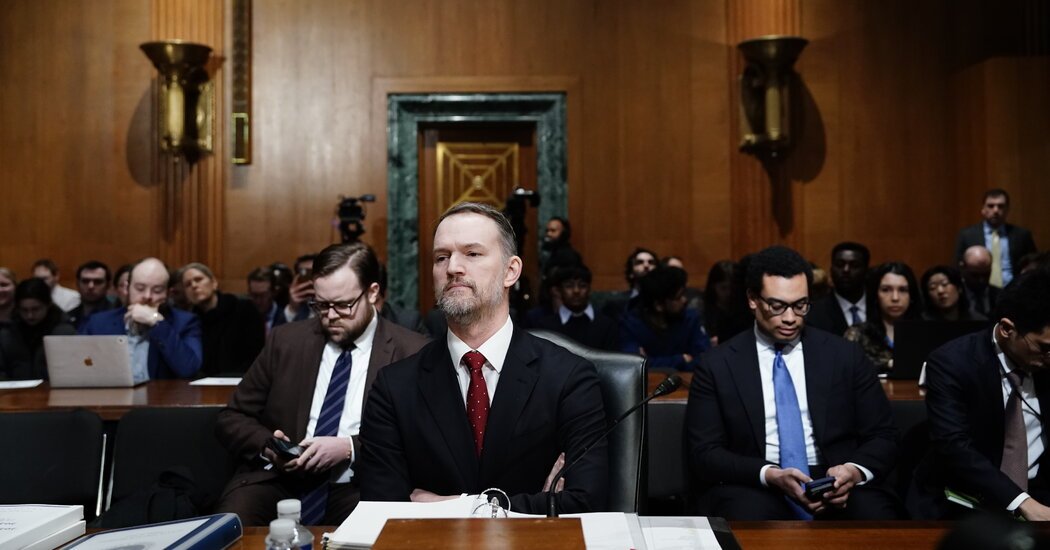Florida is known for its sunny skies, stunning coastline, and perfect weather for motorcycle enthusiasts. From scenic coastal routes to open highways, the state is a haven for riders looking to enjoy their motorcycles. But before you rev up that engine and hit the open road, it’s crucial to understand the state’s laws regarding motorcycle insurance. Is motorcycle insurance required in Florida? What types of coverage should you have? How do Florida’s laws compare to other states? In this guide, we will provide you with all the details you need to ensure you are legally compliant and adequately covered while riding in Florida.
1. Is Motorcycle Insurance Required in Florida?
The simple answer is yes, motorcycle insurance is required in Florida, but the details are a little more complex. Unlike many other states where liability insurance is mandatory for all motor vehicles, Florida has specific rules for motorcycles that are somewhat different.
In Florida, Personal Injury Protection (PIP) is required for motorcycles, but Bodily Injury Liability (BIL) and Property Damage Liability (PDL) are not. This makes Florida’s insurance requirements unique compared to other states where liability insurance is almost always required.
Key Requirements for Motorcycle Insurance in Florida:
- Personal Injury Protection (PIP) Insurance:
- PIP insurance is required by law for motorcycle riders in Florida. It covers your medical expenses and lost wages if you are injured in a motorcycle accident, regardless of who is at fault.
- PIP insurance applies to the rider, regardless of whether they are at fault in the accident or not. This makes Florida a no-fault state, where each party’s insurance pays for their own injuries.
- No Mandatory Bodily Injury Liability (BIL):
- Bodily Injury Liability coverage is not mandatory for motorcyclists in Florida. This is a significant difference from most other states, where BIL insurance is a requirement.
- However, if you are at fault in an accident and cause injuries to someone else, you could still be held personally liable for those injuries. That’s why many motorcyclists choose to add BIL coverage to protect themselves financially.
- No Mandatory Property Damage Liability (PDL):
- Florida does not require motorcycle riders to carry Property Damage Liability (PDL) insurance. This insurance typically covers the damage caused to another person’s vehicle or property in the event of an accident you cause.
- While it’s not required, many riders choose to purchase this coverage to avoid the financial burden of repairing or replacing another person’s property.
2. Why is Motorcycle Insurance Different in Florida?
Florida’s motorcycle insurance laws are rooted in its no-fault insurance system. This is a key reason why Florida differs from other states when it comes to insurance requirements.
Florida’s No-Fault System:
In a no-fault state like Florida, your own insurance policy (specifically, PIP coverage) pays for your injuries in the event of an accident, regardless of who caused the accident. This system is designed to reduce the number of lawsuits stemming from minor accidents by ensuring that medical bills and lost wages are covered by your own insurance.
However, the no-fault system also means that if you are at fault in an accident, you could still be personally liable for injuries or damage to other parties involved. This is where Bodily Injury Liability (BIL) and Property Damage Liability (PDL) become important. While not required by law, BIL and PDL can protect you from financial responsibility in the event that you cause harm to others.
Florida’s Insurance Law vs. Other States:
In contrast, many other states do not have no-fault insurance systems and require motorcyclists to carry liability insurance, which helps cover the costs of damages to others in the event of an accident. For example, in many states, you must carry both Bodily Injury Liability (BIL) and Property Damage Liability (PDL) insurance.
In these states, if you’re at fault in an accident, your insurance will cover both your medical expenses and the expenses of others involved in the accident. Florida, however, leaves it up to the individual to decide whether to take on that additional insurance coverage, which is why PIP is the only mandatory coverage for motorcyclists.
3. What Types of Motorcycle Insurance Are Available in Florida?
While Florida only mandates Personal Injury Protection (PIP) insurance, many motorcyclists opt for additional coverage to better protect themselves on the road. Here are the various types of motorcycle insurance available in Florida:
1. Bodily Injury Liability (BIL) Insurance
- While not required by law, Bodily Injury Liability (BIL) insurance covers the medical costs of people you injure in an accident. This is especially important if you are involved in an accident that causes injuries to others.
- Without BIL, you could be personally liable for these expenses, which can be financially devastating. It’s highly recommended that motorcyclists consider adding BIL to their policy for added protection.
2. Property Damage Liability (PDL) Insurance
- Property Damage Liability (PDL) covers the damage you cause to someone else’s property in the event of an accident. This can include damage to another person’s car, a building, or other structures.
- While not required by Florida law, having PDL can save you from substantial out-of-pocket costs if you damage another person’s property. PDL is a relatively affordable coverage that can provide peace of mind on the road.
3. Motorcycle Comprehensive Insurance
- Comprehensive insurance covers damage to your motorcycle that’s caused by events other than a collision. This includes theft, vandalism, weather-related damage, or other unforeseen events.
- Since Florida is prone to natural disasters like hurricanes and floods, having comprehensive insurance can help you repair or replace your motorcycle in case of damage from such events.
4. Collision Insurance
- Collision insurance covers the repair or replacement of your motorcycle if it’s damaged in an accident, regardless of fault.
- Whether you hit another vehicle, a guardrail, or a tree, collision insurance ensures that you can repair your motorcycle without having to pay the full cost out of pocket.
5. Uninsured/Underinsured Motorist (UM/UIM) Coverage
- Uninsured/Underinsured Motorist (UM/UIM) coverage is essential in Florida, where many drivers don’t carry adequate insurance. If you’re involved in an accident with a driver who is uninsured or underinsured, this coverage helps cover your medical expenses, lost wages, and damages.
- Florida has one of the highest rates of uninsured drivers in the country, making this coverage even more critical.
6. Custom Parts and Equipment Coverage
- For motorcyclists with custom modifications (such as custom handlebars, exhaust systems, or custom paint jobs), custom parts and equipment coverage ensures that these non-standard parts are covered in the event of theft or damage.
- If you’ve invested in enhancing your motorcycle, this coverage can help ensure that those modifications are adequately protected.
4. What Are the Consequences of Riding Without Insurance in Florida?
If you choose to ride a motorcycle without the required PIP insurance (or choose to waive it through proof of health insurance), you may face serious legal consequences:
- Fines: If you’re pulled over and cannot prove that you have the required insurance, you could face fines.
- License Suspension: If you are involved in an accident without insurance, you could face a suspension of your license and registration.
- Personal Liability: Without adequate insurance, you could be held personally responsible for medical bills, lost wages, and property damage caused to others in an accident. This can lead to costly lawsuits.
- Financial Responsibility: If you cause an accident without insurance, you may be forced to pay for any injuries or property damage out of pocket, which could be financially devastating.
5. Are There Any Exceptions or Special Cases?
Yes, there are some exceptions to Florida’s motorcycle insurance requirements:
- Motorcyclists Over 21:
- If you are over 21, you may be able to waive the PIP requirement by providing proof of health insurance that will cover your injuries in the event of an accident. However, this waiver only applies if you meet the age requirement and have sufficient health insurance coverage.
- Riders Without PIP:
- If you choose not to carry PIP insurance, Florida law mandates that you must carry at least $10,000 in Bodily Injury Liability (BIL) coverage for both yourself and any passengers on the motorcycle. While this is not as comprehensive as full PIP coverage, it does provide some level of protection in the event of an accident.
6. How Can You Save on Motorcycle Insurance in Florida?
Motorcycle insurance can be expensive, but there are several ways to lower your premiums in Florida:
- Take a Motorcycle Safety Course: Completing an approved motorcycle safety course can help reduce your insurance premiums. Insurers view safety courses as an indication of a lower-risk rider, and many offer discounts for completing them.
- Increase Your Deductible: Raising your deductible (the amount you pay out of pocket before insurance kicks in) can lower your premiums. However, be sure you can afford to pay the higher deductible if you need to file a claim.
- Shop Around: Insurance rates can vary significantly between providers. Comparing quotes from different companies can help you find the best deal.
- Bundle Your Insurance: If you have other types of insurance, such as auto or home insurance, bundling them with your motorcycle insurance can often result in a discount.
7. Conclusion
Motorcycle insurance in Florida is unique compared to other states due to its no-fault insurance system and the limited mandatory coverage requirements. While Personal Injury Protection (PIP) insurance is mandatory, Bodily Injury Liability (BIL) and Property Damage Liability (PDL) are not required by law, though they are highly recommended for better financial protection.
Riders in Florida should carefully assess their needs and consider additional coverage options, such as BIL, PDL, collision, and uninsured/underinsured motorist coverage, to protect themselves from potential financial hardship in the event of an accident. By understanding the insurance requirements and optional coverages available, you can make sure you’re legally compliant and adequately protected on the roads of Florida.
Frequently Asked Questions (FAQ) About Motorcycle Insurance in Florida
1. Is motorcycle insurance required in Florida?
Yes, motorcycle insurance is required in Florida. However, the state only mandates Personal Injury Protection (PIP) insurance for motorcycles. This insurance covers your medical expenses and lost wages if you are injured in an accident, regardless of fault. Bodily Injury Liability (BIL) and Property Damage Liability (PDL) insurance are not mandatory for motorcyclists in Florida but are highly recommended.
2. What does Personal Injury Protection (PIP) cover?
PIP insurance in Florida covers your medical expenses, lost wages, and other related costs if you are injured in an accident. It applies regardless of who is at fault. PIP is mandatory for all motorcyclists in Florida, but if you’re over 21 and have proof of health insurance, you may be able to waive this requirement.
3. Is Bodily Injury Liability (BIL) required for motorcycles in Florida?
No, Bodily Injury Liability (BIL) insurance is not required in Florida for motorcycles. However, it is highly recommended as it covers the medical expenses of others if you are at fault in an accident. Without BIL, you could be personally liable for injuries caused to others in an accident.
4. Is Property Damage Liability (PDL) required for motorcycles in Florida?
No, Property Damage Liability (PDL) insurance is not required for motorcycles in Florida. PDL covers damages to other people’s property, such as vehicles or buildings, if you are responsible for an accident. While not required, it is a good idea to carry this coverage to protect yourself from significant financial liability.
5. What types of optional motorcycle insurance are available in Florida?
In addition to PIP insurance, there are several optional coverage types available in Florida:
- Bodily Injury Liability (BIL): Covers injuries to others if you are at fault in an accident.
- Property Damage Liability (PDL): Covers damage you cause to other people’s property.
- Comprehensive Insurance: Covers non-collision-related damage like theft, vandalism, or natural disasters.
- Collision Insurance: Covers damage to your motorcycle from a collision, regardless of fault.
- Uninsured/Underinsured Motorist (UM/UIM) Coverage: Covers damages if you are involved in an accident with a driver who is uninsured or underinsured.
- Custom Parts and Equipment Coverage: Protects aftermarket modifications made to your motorcycle.
6. Can I waive PIP insurance if I’m over 21?
Yes, if you are over 21 and have health insurance that will cover your medical expenses in the event of an accident, you may waive the Personal Injury Protection (PIP) requirement. However, you must provide proof of health insurance that meets the state’s requirements.
7. What happens if I don’t have motorcycle insurance in Florida?
If you ride without the required insurance, you could face fines, suspension of your license, and the possibility of being held personally liable for any damages or injuries you cause in an accident. It’s illegal to operate a motorcycle without insurance in Florida, and failure to carry the required coverage could lead to serious legal and financial consequences.
8. How much does motorcycle insurance cost in Florida?
The cost of motorcycle insurance in Florida can vary widely based on factors like your age, driving record, type of motorcycle, and the amount of coverage you choose. On average, motorcycle insurance in Florida can cost anywhere from $100 to $500 or more per year for basic coverage, but more comprehensive plans could cost significantly more.
9. Can I get a discount on my motorcycle insurance in Florida?
Yes, you can often get discounts on your motorcycle insurance by:
- Completing a motorcycle safety course.
- Bundling your motorcycle insurance with other policies, such as car or home insurance.
- Maintaining a good driving record.
- Installing anti-theft devices on your motorcycle.
- Raising your deductible (if you can afford to pay more out of pocket in case of a claim).
10. Can I get motorcycle insurance without a license in Florida?
In Florida, you can get motorcycle insurance without a license if you have a valid motorcycle learner’s permit. However, you must have a valid motorcycle license to legally operate a motorcycle in the state. Insurers may require a license number before finalizing your policy, so it’s essential to obtain a permit or full license before getting insurance if you’re a new rider.
11. What are the penalties for riding without insurance in Florida?
If you’re caught riding a motorcycle without the required insurance in Florida, you could face:
- Fines for not having proof of insurance.
- Suspension of your driver’s license and vehicle registration.
- Legal liability for any injuries or property damage you cause in an accident, which could result in a significant financial burden.
12. How do I choose the right motorcycle insurance in Florida?
To choose the right motorcycle insurance, consider the following:
- Your budget: Determine how much you can afford to pay for premiums and deductibles.
- Coverage needs: Assess your risk and decide if you need additional coverage like BIL, PDL, or UM/UIM insurance.
- Riding habits: If you ride often or in risky areas, you may want comprehensive coverage. If you’re a casual rider, basic PIP and minimal optional coverage may be enough.
- Shop around: Compare quotes from multiple insurance providers to find the best deal for your needs.
13. Are there any exceptions to the motorcycle insurance requirement in Florida?
Yes, the main exception is for riders over 21 who have health insurance that covers motorcycle injuries. If you meet this requirement and provide proof, you may waive the mandatory PIP insurance. However, even in this case, it’s still a good idea to have additional coverage such as BIL or UM/UIM insurance to protect yourself financially.
14. Do I need motorcycle insurance if I’m not riding on the road?
If your motorcycle is not in use but still registered, Florida law requires you to maintain minimum insurance coverage, even if the bike is parked. If you’re not planning on riding for an extended period, you should still have your motorcycle insured or contact your insurer to discuss possible options like storage insurance or temporary coverage.
15. Can I insure a custom or modified motorcycle in Florida?
Yes, you can insure a custom or modified motorcycle in Florida. However, you may need to purchase additional coverage to protect aftermarket parts such as custom handlebars, exhaust systems, or other modifications. Custom parts and equipment coverage is usually added as an optional coverage to your policy to ensure that your customizations are protected.
16. What are the benefits of uninsured/underinsured motorist coverage (UM/UIM) for motorcycles in Florida?
In Florida, where many drivers are uninsured or underinsured, having UM/UIM coverage can be especially beneficial. If you’re involved in an accident with a driver who doesn’t have enough insurance to cover your damages or injuries, this coverage will help pay for your medical bills, lost wages, and other costs associated with the accident.
Read More:
- What are Deductibles in Car Insurance in New Jersey 2025
- Do I Need Both Commercial and Personal Auto Insurance in New Jersey?
- Know about How General Liability Insurance is Calculated for Contractors in Washington
- Florida court orders insurers to recalculate workers’ comp benefits
- Understanding Liability Coverage in Renters Insurance for New Jersey Residents




